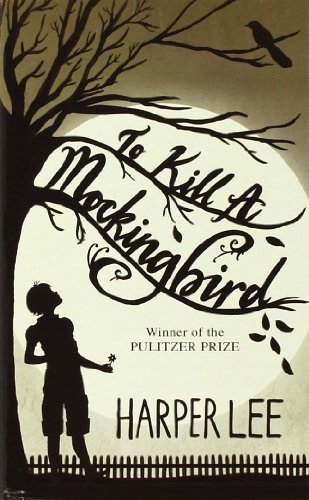All Nonfiction
- Bullying
- Books
- Academic
- Author Interviews
- Celebrity interviews
- College Articles
- College Essays
- Educator of the Year
- Heroes
- Interviews
- Memoir
- Personal Experience
- Sports
- Travel & Culture
All Opinions
- Bullying
- Current Events / Politics
- Discrimination
- Drugs / Alcohol / Smoking
- Entertainment / Celebrities
- Environment
- Love / Relationships
- Movies / Music / TV
- Pop Culture / Trends
- School / College
- Social Issues / Civics
- Spirituality / Religion
- Sports / Hobbies
All Hot Topics
- Bullying
- Community Service
- Environment
- Health
- Letters to the Editor
- Pride & Prejudice
- What Matters
- Back
Summer Guide
- Program Links
- Program Reviews
- Back
College Guide
- College Links
- College Reviews
- College Essays
- College Articles
- Back
To Kill A Mockingbird by Harper Lee
To Kill A Mockingbird, by Harper Lee, is arguably one of the greatest novels of the English language written in the 20th century. With the new sequel about to be released, I thought it would be fitting to honor the book that inspired so many people.
The book is set in Maycomb, Alabama, a sleepy Southern town. The time period is the 1930's, a time when there was "...nothing to buy and no money to buy it with..."(Lee 4). The Great Depression had the United States very hard during the time period.
The children are quickly facinated by the Radley place, a place where the townsfolk never treaded by. "A Negro would not pass the Radley Place at night, he would cut across to the sidewalk opposite and whistle as he walked.... A baseball hit into the Radley yard was a lost ball and no questions asked."(Lee 7). They were arguably more fascinated by the "malevolent phantom" that dwelled inside the home, whom no one had seen; but blamed the towns petty burglaries on. Ms. Stephanie, the town gossip, creates the fear of Boo Radley in the minds of Scout and Jem; a fear that is not resolved until the end of the book. "So Jem received most of his information from Miss Stephanie Crawford, a neighborhood scold, who said she knew the whole thing. According to Miss Stephanie, Boo was sitting in the livingroom cutting some items from The Maycomb Tribune to paste in his scrapbook. His father entered the room. As Mr. Radley passed by, Boo drove the scissors into his parent’s leg, pulled them out, wiped them on his pants, and resumed his activities"(Lee 9).
Jem, Scout, and Dill proceed to try and communicate with the "malevolent phantom" by leaving messages, and trying to come near the Radley Place. Atticus, the flag-bearer of righteousness, tries to stop these activities in vain.
The story explores various themes through the use of its minor characters. Miss Caroline, Scout's first grade teacher, tells Scout that she needs to forget how to read, so that she can undo the damage. "'Now you tell your father not to teach you any more. It’s best to begin reading with a fresh mind. You tell him I’ll take over from here and try to undo the damage-'
'Ma’am?'
'Your father does not know how to teach. You can have a seat now.”'(Lee 15). This is highly ironic, as Miss Caroline was supposed to be teaching by a new "Dewey Decimal System" of learning, in which rote and memorization were frowned upon. She proceeds to show her unfamiliarity with the students from the area.
Scout doesn't want to return to school, but Atticus teaches her to think about things from a different perspective and to wear someone elses shoes. This is one of the major themes in the book. Scout then proceeds to think about things from Ms. Caroline's perspective – a new class full of young rowdy students making her feel helpless.
After Atticus shouts down Tim Johnson, a rabid dog, and reveals himself to be 'One-Shot Finch', he begins to explain true courage. "Courage is when you know you're licked before you begin, but you begin anyway and you see it through no matter what" (Lee 124). This also one of the major themes in the book.
Atticus displays courage throughout the book. One example being his acceptance of the case of Tom Robinson, a black man wrongly accused of raping a white woman. He knows he cannot win the trial, as racial prejudice runs too deep in the town, but tries his hardest anyway.
Similar Articles
JOIN THE DISCUSSION
This article has 0 comments.


Atticus' behavior in the story is inspiring. How he defines courage and how he fullfills his civic duty by representing Tom Robinson at court.